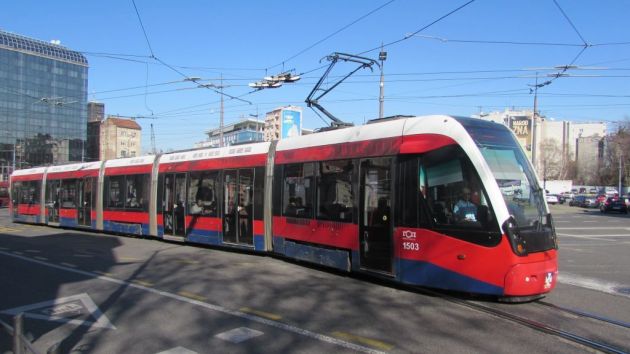HYPO BANK: Exit from recession and slow growth of Serbian economy
 Friday, 16.10.2015.
Friday, 16.10.2015.
 12:11
12:11

Credits for exiting the recession go primarily to the growth of demand for domestic goods in line with gradual recovery of the eurozone as well as to the growth of investments. On the other hand, demand by households and the state stil has an adverse effect on business activities, which is in accordance with tough fiscal consolidation measures, Danon points out. Global deceleration of the eurozone caused by the Greek debt crisis and a drop in the value of indices on Chinese stock markets, will be felt in Serbia as well.
Following the 1% growth in the second quarter, the third quarter was marked by drought in our country which will lead to a decline in agricultural production. Considering that this could weaken domestic net exports, a relatively modest growth of GDP of about 0.5-1% could be expected this year.
In line with somewhat bigger external demand, the current account deficit of the balance of payments was reduced by about 30% y-o-y in the first half of the year, while FX reserves grew approximately EUR 80 million. Deficit reached as low as EUR 0.7 billion, that is, nearly 4.5% of the gross domestic product.
This external balancing kept Dinar stable most of the year. However, given that Serbia's current account deficit is still among the largest in eastern and central Europe, it is possible to expect Dinar to depreciate nominally.
Inflation is at a record low in the past few years, which also causes interest rates to go down. The report says that the influence of drought on food prices will be one of the crucial inflationary pressures in the following period. It won't be possible to return annual inflation within the target range of 4 +/- 1.5% before early 2016.
In order to encourage business activities, NBS alleviated the restrictiveness of monetary policy in the conditions of low inflation and stable national currency. Since March, the reference rate has dropps a total of three percent, reaching five percent after the September session of the NBS Executive Board.
In the first seven months of this year, consolidated budget deficit dropped 65% from the same period last year, to RSD 39 billion or nearly 2% of GDP. This is primarily a result of 5.4% growth of revenue y-o-y and 2.4% decrease in expenditures, all in line with the reduction of public sector pensions and wages and somewhat lower rate of implementation of public investments.
If the state keeps borrowing money to reduce deficit, public debt will most likely continue to grow from current 75% of GDP towards the level of about 76-77%, it is concluded in Hypo Alpe Adria Bank's Finance and Market Trends Guide.
Most Important News
06.04.2024. | Agriculture
Preconditions for Placement of Fresh Blueberries and Dried Plums in Chinese Market Secured

16.04.2024. | News
Jovan Ciric, Leasing Director Retail MPC Properties – MPC Echo symbolizes our desire for good ideas and innovative endeavors to spread freely and bring about positive changes

16.04.2024. | News
10.04.2024. | Finance, IT, Telecommunications, Tourism, Sports, Culture
Creative Industry – What This Serbian Economy Sector Worth EUR 2 Billion Encompasses

10.04.2024. | Finance, IT, Telecommunications, Tourism, Sports, Culture
18.04.2024. | Industry, Finance
Here come the new hunters for Serbian gold – Australian Strickland Metals buys mining project on mountain Rogozna

18.04.2024. | Industry, Finance
16.04.2024. | News
Economy Fair in Mostar opens – 26 companies from Serbia exhibiting

16.04.2024. | News
18.04.2024. | Transport
Jovanovic: Purchase of Siemens trams produced in Kragujevac for GSP Beograd should be considered

18.04.2024. | Transport


 Izdanje Srbija
Izdanje Srbija Serbische Ausgabe
Serbische Ausgabe Izdanje BiH
Izdanje BiH Izdanje Crna Gora
Izdanje Crna Gora


 News
News








